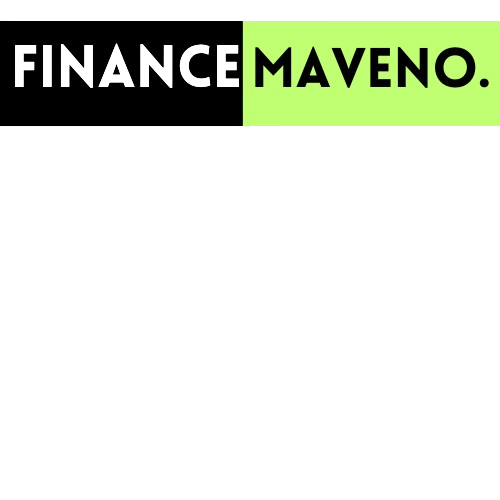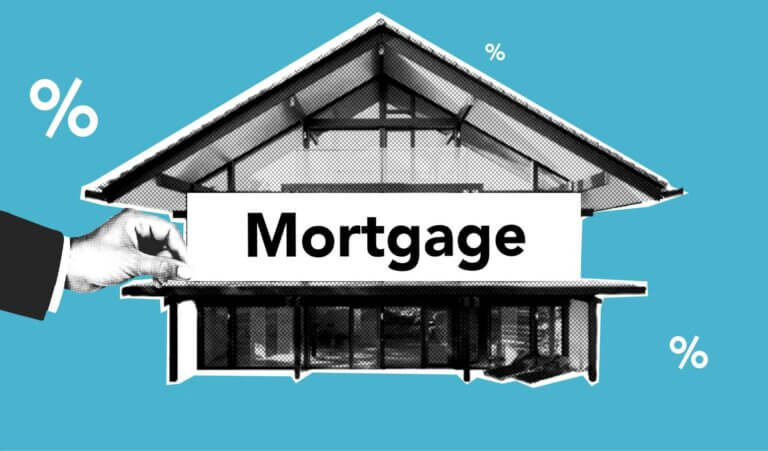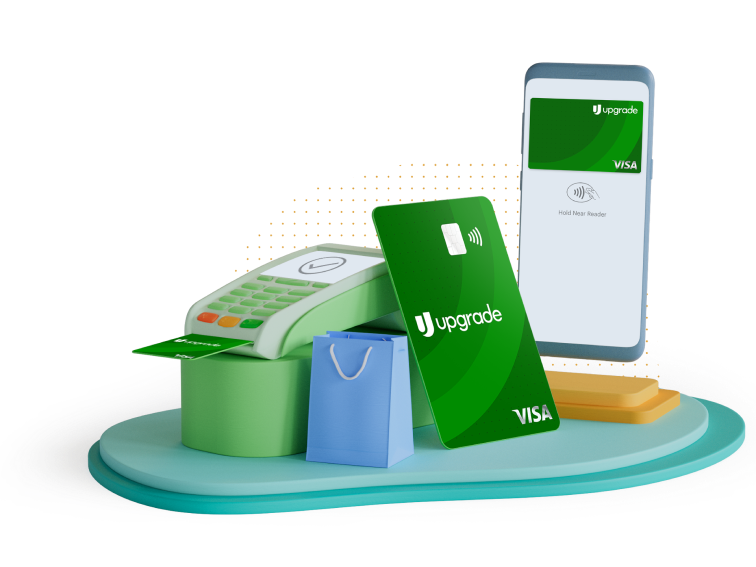SBA Loans vs Bank Loans – Key differences that could save your business money
This comprehensive guide will delve into the specifics of SBA loans vs bank loans,…
…helping you make an informed decision about which option is best suited to your business needs.
Starting or expanding a business often requires substantial capital.
Business owners frequently find themselves weighing their financing options, with SBA loans and traditional bank loans being two prominent choices.
Each option comes with its own set of advantages and disadvantages.

GOKAPITAL SBA LOANS
GROW YOUR BUSINESS AFFORDABLY
Loan Amounts: Up to $10,000,000
The best and most affordable way to obtain financing for your small business!
Key Takeaways –
- Comparative Advantage: SBA loans generally offer lower interest rates, longer repayment terms, and greater flexibility in loan usage compared to traditional bank loans. However, they come with a more complex application process and stricter eligibility requirements. On the other hand, bank loans usually have a quicker approval process and fewer paperwork demands but may come with higher interest rates and shorter terms.
- Eligibility and Application: SBA loans are designed to be accessible to a broader range of businesses, including startups and those with less established credit. They require detailed documentation and can take longer to process. Bank loans, while potentially quicker and less paperwork-intensive, often demand a stronger credit history and established business performance.
- Choosing the Right Fit: The decision between SBA loans and bank loans should be based on your specific business needs, financial situation, and long-term goals. Consider factors such as the amount of funding required, interest rates, repayment terms, and the urgency of acquiring funds to determine which financing option aligns best with your business objectives.

Intro
When it comes to securing financing for your business,…
…understanding the different types of loans available can significantly impact your decision-making process.
Small Business Administration (SBA) loans and traditional bank loans are two popular options, each offering distinct benefits and drawbacks.
Choosing between these two financing sources involves examining various factors,…
…such as eligibility requirements, application processes, interest rates, and terms.
In this guide, we’ll explore these aspects in detail to help you determine the best fit for your business needs.

GOKAPITAL BUSINESS LOANS
BUSINESS
LENDING MADE SIMPLE!
Secure online application only takes minutes.
Pros and Cons of SBA Loans
Pros
- Lower Interest Rates: SBA loans typically offer lower interest rates compared to traditional bank loans. This is because the SBA guarantees a portion of the loan, reducing the lender’s risk.
- Longer Repayment Terms: SBA loans often come with longer repayment terms, making monthly payments more manageable and providing businesses with more time to repay the loan.
- Smaller Down Payments: Compared to conventional bank loans, SBA loans generally require smaller down payments, which can be advantageous for businesses with limited upfront capital.
- Flexibility: SBA loans are often more flexible in terms of loan uses. They can be used for various purposes including equipment purchases, working capital, and real estate.
- Support for Startups: SBA loans are more accessible for startups and businesses with less established credit histories, thanks to the SBA’s backing.
Cons
- Lengthy Approval Process: The approval process for SBA loans can be lengthy, often taking several weeks or even months due to the extensive paperwork and evaluation involved.
- Complex Application Requirements: SBA loans require extensive documentation and a thorough application process, which can be cumbersome for some applicants.
- Strict Eligibility Criteria: While SBA loans are accessible to many businesses, they do have strict eligibility requirements, which can disqualify some applicants.
- Collateral Requirements: SBA loans often require collateral to secure the loan, which may not be feasible for all businesses.

UNSECURED BUSINESS TERM LOANS
$30,000 TO $350,000 AVAILABLE
LOW-RATE MONTHLY PAYMENTS
NO PRE-PAYMENT PENALTIES (DISCOUNTS INSTEAD)
1-2 WEEK PROCESS. SEE BELOW FOR DETAILS
Pros and Cons of Bank Loans
Pros
- Quicker Processing: Traditional bank loans generally have a faster processing time compared to SBA loans, allowing businesses to access funds more quickly.
- Less Paperwork: Bank loans often require less documentation than SBA loans, which can streamline the application process.
- Variety of Loan Products: Banks offer a wide range of loan products tailored to different business needs, including lines of credit, term loans, and equipment financing.
- Potentially Higher Loan Amounts: Banks may offer larger loan amounts compared to SBA loans, depending on the business’s financial health and creditworthiness.
Cons
- Higher Interest Rates: Bank loans typically come with higher interest rates compared to SBA loans, which can result in higher overall borrowing costs.
- Stricter Eligibility Requirements: Banks often have more stringent eligibility criteria, including higher credit score requirements and a more substantial financial history.
- Shorter Repayment Terms: Bank loans generally have shorter repayment terms, which can lead to higher monthly payments and increased financial pressure on the business.
- Lack of Flexibility: Bank loans may have more restrictive terms regarding the use of funds, limiting their applicability to specific business needs.
Eligibility Requirements for SBA Loans
- Business Size: To qualify for an SBA loan, your business must be considered a small business according to SBA size standards, which vary by industry.
- Business Type: SBA loans are available to for-profit businesses that operate within the United States. Non-profit organizations are not eligible.
- Credit Score: While SBA loans are more accessible to those with less-than-perfect credit, lenders still prefer applicants with a good credit score. Generally, a credit score of 640 or higher is desirable.
- Business Plan: A detailed business plan demonstrating the viability and potential profitability of your business is often required.
- Collateral: SBA loans usually require collateral, though this may vary depending on the type and amount of the loan.
- Owner’s Investment: SBA loans generally require owners to invest a significant amount of their own money into the business, often 10% or more of the total project cost.
Eligibility Requirements for Bank Loans
- Credit Score: Banks typically require a higher credit score for approval, often in the range of 680 or higher. A strong credit history is crucial.
- Business History: Banks prefer established businesses with a proven track record of profitability and stable financial performance.
- Financial Statements: Comprehensive financial statements, including balance sheets and income statements, are often required to assess the financial health of the business.
- Collateral: Many traditional bank loans require substantial collateral, which may include business assets, personal assets, or other forms of security.
- Business Plan: A well-prepared business plan is usually necessary, although some banks may place less emphasis on this compared to SBA lenders.
Application Process for SBA Loans
- Preparation: Gather necessary documents, including financial statements, tax returns, a detailed business plan, and personal information for all business owners.
- Choose a Lender: Find an SBA-approved lender, which can be a bank, credit union, or other financial institution.
- Application Submission: Complete and submit the SBA loan application along with the required documentation. The SBA loan application typically includes forms such as the SBA Form 1919 (Borrower Information Form) and SBA Form 413 (Personal Financial Statement).
- Review and Processing: The lender will review your application and documentation, and may request additional information. This stage can take several weeks.
- Approval and Closing: If approved, you will receive a loan commitment letter outlining the terms. The final step involves closing, where you sign the loan agreement and receive the funds.
Application Process for Bank Loans
- Preparation: Compile necessary documentation, including financial statements, tax returns, a business plan, and personal financial information.
- Loan Application: Complete the loan application form provided by the bank. This may be done online or in person, depending on the bank’s procedures.
- Review: The bank will review your application and financial documents. This process is generally faster than the SBA loan process.
- Approval: If approved, you will receive a loan offer detailing the terms, interest rates, and repayment schedule. Review these terms carefully.
- Disbursement: Once you accept the loan offer and sign the agreement, the bank will disburse the funds to your business account.
Interest Rates and Terms for SBA Loans
- Interest Rates: SBA loan interest rates are generally lower than those of traditional bank loans. They are typically capped by the SBA, providing more predictable and manageable payments.
- Fixed vs. Variable Rates: SBA loans may offer both fixed and variable interest rates. Fixed rates provide stability, while variable rates can fluctuate based on market conditions.
- Repayment Terms: SBA loans typically come with longer repayment terms, ranging from 7 to 25 years, depending on the type of loan and its purpose.
- Fees: SBA loans may involve additional fees, such as loan guarantee fees or packaging fees, which vary based on the lender and loan type.
Interest Rates for Bank Loans
- Interest Rates: Bank loan interest rates are usually higher than those of SBA loans. Rates can be fixed or variable and are influenced by market conditions and the borrower’s creditworthiness.
- Fixed vs. Variable Rates: Banks offer both fixed and variable interest rate options. Fixed rates provide predictability, while variable rates may fluctuate, potentially affecting your monthly payments.
- Repayment Terms: Bank loans generally have shorter repayment terms, ranging from 1 to 10 years, depending on the loan type and amount.
- Fees: Bank loans may include origination fees, application fees, or prepayment penalties, which can affect the overall cost of borrowing.
Choosing the Right Financing Option for Your Business
Deciding between SBA loans and bank loans involves evaluating your business’s specific needs, financial situation, and long-term goals. Here are some factors to consider:
- Loan Amount and Terms: If you need a large loan amount and extended repayment terms, SBA loans may be more suitable. For smaller, shorter-term financing needs, a bank loan might be appropriate.
- Interest Rates: Compare the interest rates offered by both options. SBA loans generally offer lower rates, which can result in significant savings over time.
- Application Process: If you need funding quickly and prefer a less complex application process, a bank loan may be advantageous. However, if you can afford to wait and prefer potentially better terms, an SBA loan might be worth the effort.
- Eligibility Requirements: Evaluate your business’s eligibility for each type of loan. SBA loans may be more accessible for startups and businesses with less-than-perfect credit, while bank loans often require a stronger financial history and higher credit scores.
Ultimately, the right choice will depend on your business’s unique circumstances and financial goals.
Conduct thorough research, consult with financial advisors if necessary,…
…and carefully review the terms and conditions of any loan before making a decision.
By understanding the nuances of SBA loans and bank loans, you can make a more informed choice,…
…and secure the financing that best supports your business’s growth and success.
Why GoKapital SBA Loans Could Be Your Best Choice
When evaluating SBA loans vs. bank loans, GoKapital stands out as a superior choice for many entrepreneurs.
Their specialized approach to SBA loans means you benefit from a streamlined application process,…
…expert guidance, and personalized support that can significantly reduce approval times.
GoKapital’s deep understanding of SBA requirements ensures you receive the most favorable terms and conditions available.
Moreover, their commitment to customer satisfaction and flexibility in handling unique business needs,…
…makes them an ideal partner in securing the funding your business needs to grow.
By choosing GoKapital for your SBA loan, you’re not just accessing capital—you’re gaining a dedicated ally in your business’s success journey
Wrapping It Up
When comparing SBA loans vs. bank loans, it’s essential to weigh the benefits and drawbacks of each option in relation to your specific needs.
SBA loans often offer favorable terms, lower interest rates, and flexible repayment plans, making them a strong choice for many small businesses.
However, they come with more stringent application requirements and longer approval times.
On the other hand, traditional bank loans can provide quicker access to funds,…
…with potentially fewer bureaucratic hurdles but may come with higher interest rates and less favorable terms.
Ultimately, the best choice will depend on your business’s financial situation, urgency of funding, and ability to meet the respective qualifications.
Assessing these factors carefully will help you make an informed decision that aligns with your long-term business goals.
Feel free to ask me any questions about SBA loans vs bank loans in the comments section.
Cheers!
Frequently Asked Questions
What are SBA loans?
SBA loans are financial products backed by the U.S. Small Business Administration (SBA), designed to help small businesses secure financing. The SBA provides a guarantee to lenders, which reduces their risk and makes it easier for businesses to obtain loans with favorable terms.
How do SBA loans differ from bank loans?
The primary difference is that SBA loans are partially guaranteed by the SBA, reducing the lender’s risk and often resulting in lower interest rates and longer repayment terms. In contrast, traditional bank loans are not backed by a government agency, so they typically come with stricter credit requirements and higher interest rates.
What are the eligibility requirements for SBA loans?
To qualify for an SBA loan, businesses generally need to meet criteria such as being a for-profit entity, operating in the U.S., having a sound business plan, and demonstrating the ability to repay the loan. Specific requirements can vary depending on the type of SBA loan.
Are SBA loans harder to obtain than bank loans?
SBA loans can be more challenging to obtain due to the extensive documentation and approval process, but they often offer better terms than traditional bank loans. Banks typically have stricter lending criteria and may require higher credit scores and collateral.
Can I use an SBA loan for any business purpose?
Yes, SBA loans can be used for a variety of business purposes, including working capital, equipment purchases, real estate, and debt refinancing. However, there are restrictions on using funds for certain activities like speculative investments or gambling.
What are the interest rates for SBA loans compared to bank loans?
SBA loans usually have lower interest rates than traditional bank loans due to the government guarantee. The exact rate depends on the type of loan, the lender, and the borrower’s creditworthiness.
How long does it take to get an SBA loan compared to a bank loan?
The processing time for SBA loans is generally longer than for traditional bank loans, often taking several weeks to a few months. Bank loans might be processed more quickly, depending on the lender’s procedures and the complexity of the loan application.
Are there any fees associated with SBA loans?
Yes, SBA loans can come with fees, such as guarantee fees and processing fees, which can vary based on the loan amount and lender. These fees are generally lower than those associated with traditional bank loans.






